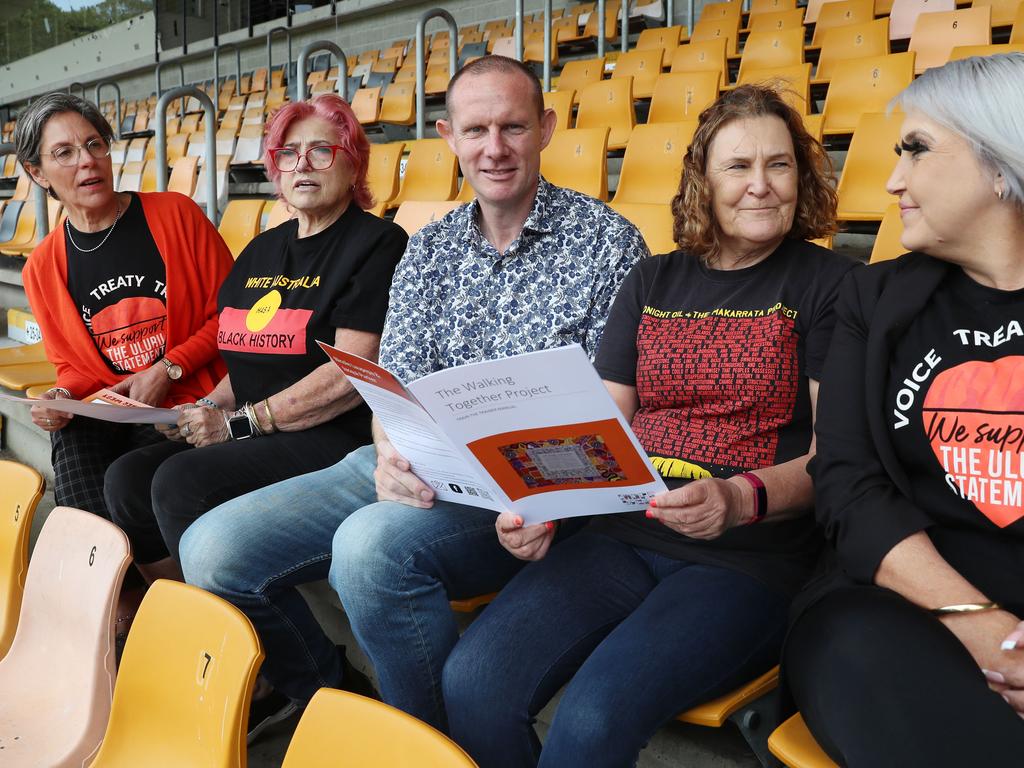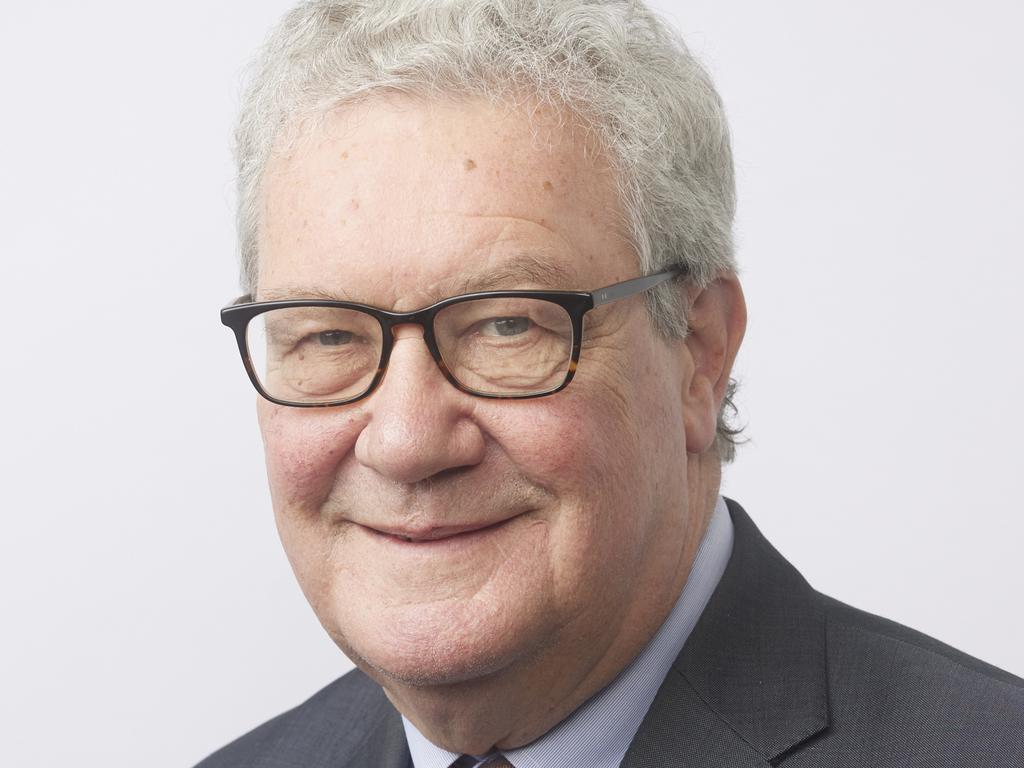Get better advice on voice and go back to the drawing board


However, it is hard to see that this opinion, produced by a group consisting of pro-voice constitutional lawyers and assorted others, deserved the fanfare. You see, nobody has ever suggested the voice had such a power, at least in a legal sense. A finer example of using hi-tech weaponry to knock over a straw man can scarcely be imagined.
Let me save the minister some legal fees. There are numerous other propositions nobody has ever put and that thus do not require legal opinions. For example, nobody has ever suggested the voice has power to appoint or dismiss the governor-general or the prime minister or for that matter the captain of the Australian cricket team.
What I, and many others, have suggested is that the power to delay legislation by parliament or to delay acts of the executive government while litigation or consultation occurs can easily be a de facto veto of, and offer substantial leverage over, proposed legislation or government action. Note the words de facto. Not de jure.
For the record, I accept and have always accepted that in strict legal form the voice is an advisory body. However, the Tipakalippa case and a multitude of similar cases make plain what power a right to make representations or to be consulted can confer. A vast body of case law, as well as practical experience in the mining, energy and agriculture sectors, shows that a right to be consulted or to make representations is an exceedingly powerful and valuable right.
The Albanese amendment proposes that the voice will have that right not only in respect of proposed legislation but also in respect of proposed acts or omissions of the executive government. Moreover, the voice will have that right not only in respect of matters that affect Indigenous people only but in respect of matters that affect all Australians equally, provided the relevant matter also relates in some way to Indigenous Australians. As Kenneth Hayne has pointed out, the phrase “matters relating to” Aboriginal or Torres Strait Islander people is a wide one.
While dealing with misunderstandings, let me clarify that I accept the term third chamber is probably inappropriate. A more accurate term, at least in terms of timing, would be first chamber since the entire premise of the voice is for it to be consulted first – before any legislation or act of executive government that “relates to” Indigenous people can be finalised. If a proposed bill or act of executive government relates to Indigenous people, the kind of careful and meaningful consultation described in the Tipakalippa case (and many similar cases) will need to be completed before parliament can finalise the relevant legislation or the executive government can perform the relevant act. Failure to do so will mean another round of litigation and possible invalidity.
On the present draft of the Albanese amendment, very few pieces of proposed legislation or acts of executive government will escape the need for consultation with the voice before finalisation.
There are so many legal issues on which Burney and the government could have usefully got legal advice without wasting time on unnecessary legal opinions on fictitious propositions. Indeed, instead of outsourcing the government’s legal advice to a group of voice activists, the government should seek advice from its own lawyers, such as the Solicitor-General, the lawyers at the Attorney-General’s Department or in the Australian Government Solicitor’s office. Having done so, it should publish the advice.
Objective legal advice should cover contentious matters such as justiciability, which the government has completely botched so far. For example, the final report of the Indigenous Voice Co-Design Process pointed out that its design was predicated on the “need to respect parliamentary sovereignty and avoid causing unintended consequences. As a result, all elements would be non-justiciable, meaning alignment with the standards could not be challenged in court and could not legally affect the validity of legislation or policies.”
We now know, courtesy of former High Court justices Hayne and Ian Callinan, among others, that under the Albanese amendment the High Court, not parliament, will be the final decision-maker. This means the final report of the co-design group is fatally flawed and is best ignored. Its claims of non-justiciability are little short of bogus, and the co-design working group needs to start again.
The government could also usefully have more objective lawyers, not a group of voice advocates, examine the International Convention on Elimination of All Forms of Racial Discrimination, which Australia ratified by passing the Racial Discrimination Act in 1975. The convention requires Australia to “prohibit and to eliminate racial discrimination in all its forms and to guarantee the right of everyone, without distinction as to race, colour, or national or ethnic origin, to equality before the law.”
The convention also exempts special measures taken for the purpose of securing adequate advancement of certain racial or ethnic groups but critically requires that “such measures do not, as a consequence, lead to the maintenance of separate rights for different racial groups and that they shall not be continued after the objectives for which they were taken have been achieved”.
A permanent constitutional preference, such as the voice, which is unlimited by time or by reference to the achievement of specified objectives, seems the clearest possible breach of the convention.
The constitutional expert group’s final defence resembles the last-resort argument of every parent – “because I said so”. The group asserts, without proof or any apparent logic, that the “voice does not provide anyone with ‘special rights’ ”. Ignore that the voice would have powerful rights, not shared by any other body and enforceable by action in the High Court, to enforce its rights to make representations. Ignore that Aboriginal and Torres Strait Islanders would have rights not shared with non-Indigenous people to elect or appoint members of the voice and participate in its affairs. Ignore all of those powerful capabilities unique to Indigenous people under the Albanese amendment. They are not “special rights”. Why? Because the constitutional expert group says so. We are entitled to expect more from those who want to change the way we govern ourselves.
To all our wonderful readers, I wish you a very merry Christmas and happy festive season.







With considerable fanfare, Indigenous Australians Minister Linda Burney has just produced a summary of an opinion from the constitutional expert group that the voice envisaged by Anthony Albanese’s proposed amendment to the Constitution does not have a veto power over parliament or the executive government.